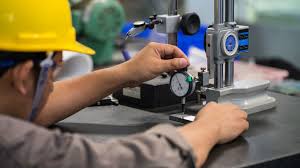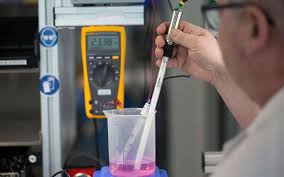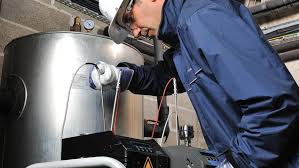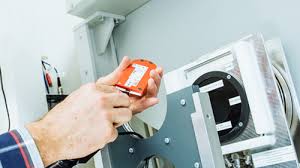Gas Monitor Calibration Service is a crucial aspect of ensuring the accuracy and safety of gas monitoring equipment. Professional calibration services play a vital role in ensuring that gas monitors are functioning correctly and providing accurate readings. With the calibration of electrical test equipment potential risks associated with gas leaks and exposure, it is essential to have your gas monitors calibrated regularly by a qualified service provider. This ensures that your monitoring equipment operates effectively, offering reliable and precise measurements to help maintain a safe and secure environment.
Professional gas monitor calibration service is essential to ensure the safety and accuracy of gas detection equipment. During calibration, the monitors are tested and adjusted to ensure they are providing accurate readings of gas levels in the surrounding environment. This is crucial for the safety of workers, as well as for ensuring compliance with equipment calibration industry regulations. Calibration should be performed by qualified technicians who have the necessary skills and equipment to ensure that the monitors are functioning accurately. It is important to have this service performed regularly to maintain the reliability of the gas detection equipment. By investing in professional gas monitor calibration service, businesses can minimize the risk of accidents and ensure a safe working environment for their employees. It also helps to avoid any potential liabilities that may arise from inaccurate gas level readings. Overall, professional gas monitor calibration service is a crucial aspect of maintaining a safe and compliant workplace, and should be prioritized by businesses that rely on gas detection equipment.
The Importance of Gas Monitor Calibration Service for Industrial Safety

Gas monitor calibration service is critical for ensuring the safety of industrial environments. Regular calibration of gas monitors is necessary to ensure their accuracy and reliability in detecting and measuring hazardous gases. Properly calibrated gas monitors provide early detection of potential threats, allowing for prompt action to prevent accidents or exposure to harmful gases. This is essential for protecting the health and safety of workers and reducing the risk of accidents in industrial settings. Additionally, calibrated gas monitors help companies comply with regulations and standards for workplace safety. Overall, gas monitor calibration service is an important aspect of maintaining a safe working instrument calibration solutions environment in industrial facilities.
Understanding the Process of Gas Monitor Calibration Service

Gas monitor calibration service is essential for ensuring accurate and reliable readings from the device. The process involves comparing the readings of the gas monitor to known concentrations of calibration gas to verify its accuracy. This typically involves adjusting the monitor's internal settings to align with the calibration gas concentrations. Calibration is usually performed by qualified technicians using specialized equipment to ensure precise measurements. Regular calibration of gas monitors is necessary to maintain their effectiveness and compliance with safety regulations.
Top Benefits of Regular Gas Monitor Calibration Service

Regular gas monitor calibration service ensures that the device is accurately detecting and measuring gas levels, which is crucial for maintaining a safe working environment in industries such as oil and gas, mining, and manufacturing. By calibrating the gas monitor regularly, you can ensure the safety of your employees and prevent potential accidents and injuries. Additionally, accurate calibration can also help in complying with industry standards and regulations. It can also extend the life of the gas monitor and reduce the risk of false alarms, which can disrupt productivity and cause unnecessary panic. Overall, regular calibration of gas monitors is essential for ensuring workplace safety and peace of mind.
How to Choose the Right Gas Monitor Calibration Service Provider

When selecting a gas monitor calibration service provider, it is important to consider their experience and expertise in the field. Look for a provider that has a proven track record of accurately calibrating gas monitors and has a thorough understanding of the specific requirements for your industry. Additionally, consider the provider's reputation and reliability, as well as their ability to provide timely and efficient calibration services. It is also essential to ensure that the provider uses certified calibration gases and follows industry standards and regulations. Lastly, consider the cost of the calibration services and compare quotes from different providers to ensure you are getting the best value for your money.
Common Misconceptions About Gas Monitor Calibration Service
calibration services perth

Gas monitor calibration services are often misunderstood due to a few common misconceptions. One such misconception is that calibration is not necessary for new gas monitors. In reality, even new gas monitors should be calibrated to ensure accurate and reliable readings. Another misconception is that calibration is a one-time event. In fact, gas monitors should be regularly calibrated to account for environmental factors, normal wear and tear, and sensor drift. Regular calibration ensures that the device continues to provide accurate measurements over time. Some people also believe that calibration can be done in-house without the need for professional services. While DIY calibration may seem cost-effective, it often leads to inaccuracies and can compromise the safety and reliability of the gas monitor. Professional calibration services are equipped with the necessary tools, expertise, and standards to ensure precise and reliable calibration. Lastly, there is a misconception that calibration is a time-consuming and complicated process. With advancements in technology, calibration services have become more efficient and streamlined. Many calibration services offer quick turnaround times and minimal disruption to the user's operations. Understanding and addressing these misconceptions is important for ensuring the safety and effectiveness of gas monitors in various industrial and commercial settings. Professional calibration services play a crucial role in maintaining the accuracy and reliability of gas monitors, ultimately contributing to a safer work environment.
The Cost of Ignoring Gas Monitor Calibration Service
Ignoring gas monitor calibration service can result in a range of costly consequences. Failure to calibrate gas monitors can lead to inaccurate readings, potentially endangering the health and safety of individuals in the vicinity. Additionally, non-compliance with regulatory standards and potential legal repercussions can result in significant financial penalties. Regular calibration is crucial for ensuring the reliability and accuracy of gas monitors, ultimately preventing costly incidents and liabilities.
5 Key Factors to Consider When Selecting a Gas Monitor Calibration Service
1. Accreditation: Look for a calibration service that is accredited by a recognized organization, such as the International Organization for Standardization (ISO), to ensure that the service meets specific quality and technical standards. 2. Calibration Frequency: Consider the frequency at which your gas monitor needs to be calibrated and choose a service that can accommodate this schedule, whether it's annual, semi-annual, or more frequent calibration. 3. Traceability: Ensure that the calibration service provides traceable calibration certificates, meaning that the calibration equipment used is calibrated to national or international standards. 4. Turnaround Time: Evaluate the turnaround time offered by the calibration service to determine if it aligns with your operational needs and downtime tolerance. 5. Technical Expertise: Verify the expertise of the calibration service providers in calibrating the specific make and model of your gas monitor, as well as their experience with the type of gases being monitored.
The Role of Technology in Gas Monitor Calibration Service
Gas monitor calibration services rely heavily on technology to ensure the accurate and precise calibration of gas monitoring equipment. Advanced calibration devices and software are used to calibrate gas monitors to ensure their compliance with industry standards and regulations. These technologies help in the detection and measurement of various gases, including oxygen, carbon monoxide, hydrogen sulfide, and combustible gases, ensuring the safety of workers in industrial settings. Additionally, technology allows for the recording and storage of calibration data, providing a comprehensive history of each gas monitor's calibration, which is essential for compliance and audit purposes. Overall, technology plays a crucial role in ensuring the effectiveness and reliability of gas monitor calibration services.
Expert Tips for Maintaining Gas Monitor Calibration Service Accuracy
1. Regularly schedule calibration: It is crucial to adhere to the manufacturer's recommended calibration schedule to ensure that the gas monitor is accurately detecting gases and vapors. Typically, this involves periodic calibration at a certified service center. 2. Use certified gas: When calibrating a gas monitor, it is imperative to use certified calibration gas to ensure accurate results. Using non-certified or expired gas can lead to inaccurate readings. 3. Ensure proper storage: Properly store gas monitors in a clean and dry environment when not in use. Exposure to extreme temperatures, moisture, and contaminants can affect the accuracy of the calibration. 4. Document calibration results: Keep detailed records of all calibration and maintenance activities for each gas monitor. This documentation can be crucial for compliance and in the event of an incident investigation. 5. Train personnel: Ensure that personnel responsible for calibrating and maintaining gas monitors are properly trained and familiar with the manufacturer's guidelines. Proper training can help prevent errors and ensure accurate calibration. 6. Implement a maintenance program: In addition to calibration, implement a comprehensive maintenance program that includes regular inspections, sensor checks, and functional tests to ensure the gas monitors are operating accurately. 7. Address issues promptly: If a gas monitor shows signs of malfunction or inaccuracy, address the issue promptly by performing troubleshooting or sending it to a certified service center for evaluation and repair. Prompt action can prevent potential safety hazards.
The Future of Gas Monitor Calibration Service: Trends and Innovations
The future of gas monitor calibration service is characterized by trends and innovations that aim to improve accuracy, efficiency, and convenience. One of the key trends is the use of advanced sensor technology that enables more precise calibration of gas monitors. This technology allows for real-time monitoring and adjustment of gas levels, resulting in more reliable and accurate measurements. Another trend in gas monitor calibration service is the increasing demand for remote calibration capabilities. This allows for calibration to be performed from a central location, reducing the need for on-site technicians and minimizing downtime. Furthermore, the integration of calibration data with cloud-based systems facilitates easy access and analysis of calibration records, enhancing compliance and reporting requirements. In terms of innovations, there is a growing interest in the development of automated calibration systems that can perform calibration tasks without human intervention. These systems are equipped with self-diagnostic features and can alert operators to any issues or deviations in calibration, ensuring continuous accuracy and reliability. Overall, the future of gas monitor calibration service is moving towards more technologically advanced and automated solutions that offer improved accuracy, efficiency, and convenience for industries and organizations that rely on gas monitoring for safety and regulatory compliance.
